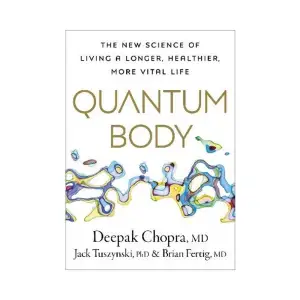The Quantum and the Lotus (häftad, eng)


The Quantum and the Lotus (häftad, eng)
Matthieu Ricard trained as a molecular biologist, working in the lab of a Nobel prize—winning scientist, but when he read some Buddhist philosophy, he became drawn to Buddhism. Eventually he left his life in science to study with Tibetan teachers, and he is now a Buddhist monk and translator for the Dalai Lama, living in the Shechen monastery near Kathmandu in Nepal. Trinh Thuan was born into a Buddhist family in Vietnam but became intrigued by the explosion of discoveries in astronomy during the 1960s. He made his way to the prestigious California Institute of Technology to study with some of the biggest names in the field and is now an acclaimed astrophysicist and specialist on how the galaxies formed. When Matthieu Ricard and Trinh Thuan met at an academic conference in the summer of 1997, they began discussing the many remarkable connections between the teachings of Buddhism and the findings of recent science. That conversation grew into an astonishing correspondence exploring a series of fascinating questions. Did the universe have a beginning? Or is our universe one in a series of infinite universes with no end and no beginning? Is the concept of a beginning of time fundamentally flawed? Might our perception of time in fact be an illusion, a phenomenon created in our brains that has no ultimate reality? Is the stunning fine-tuning of the universe, which has produced just the right conditions for life to evolve, a sign that a “principle of creation” is at work in our world? If such a principle of creation undergirds the workings of the universe, what does that tell us about whether or not there is a divine Creator? How does the radical interpretation of reality offered by quantum physics conform to and yet differ from the Buddhist conception of reality? What is consciousness and how did it evolve? Can consciousness exist apart from a brain generating it?The stimulating journey of discovery the authors traveled in their discussions is re-created beautifully in The Quantum and the Lotus, written in the style of a lively dialogue between friends. Both the fundamental teachings of Buddhism and the discoveries of contemporary science are introduced with great clarity, and the reader will be profoundly impressed by the many correspondences between the two streams of thought and revelation. Through the course of their dialogue, the authors reach a remarkable meeting of minds, ultimately offering a vital new understanding of the many ways in which science and Buddhism confirm and complement each other and of the ways in which, as Matthieu Ricard writes, “knowledge of our spirits and knowledge of the world are mutually enlightening and empowering.” Format Häftad Omfång 320 sidor Språk Engelska Förlag Crown Publishing Group Utgivningsdatum 2004-10-26 Medverkande Matthieu Ricard ISBN 9781400080793
Detaljer
| Pris | 209kr |
| Storlek | - |
| Kategori | bocker |
Hur funkar Plick?
Hur köper jag på Plick?
Köp din nya outfit på Plick. Tänk på de där skorna eller den där klänningen du alltid drömt om men inte riktigt haft råd med. Börja med att skapa en profil. En sökning bort kanske du hittar drömplagget till en tiondel av priset. Vågar du chansa på att inte skapa ett konto?

1. Sök
Öppna dörren till 100- tusentals second handplagg

2. Snacka
Kom överrens med säljaren och plagget kan bli ditt på några sekunder!

3. Köp!
Hur säljer jag på Plick?
Sälj dina bortglömda favoriter i appen. Har du tänkt på alla gamla favoritplagg som hamnar längre och längre in i garderoben? Med Plick får du en chans att ge dem nytt liv och dessutom tjänar du en slant på det. Din garderob kan vara en guldgruva för någon annan!

1. Fota
Fota plagget på dig själv eller häng det på en galge.

2. Tagga
Beskriv ditt plagg och gör det tillgängligt för andra fashionistas

3. Sälj!












